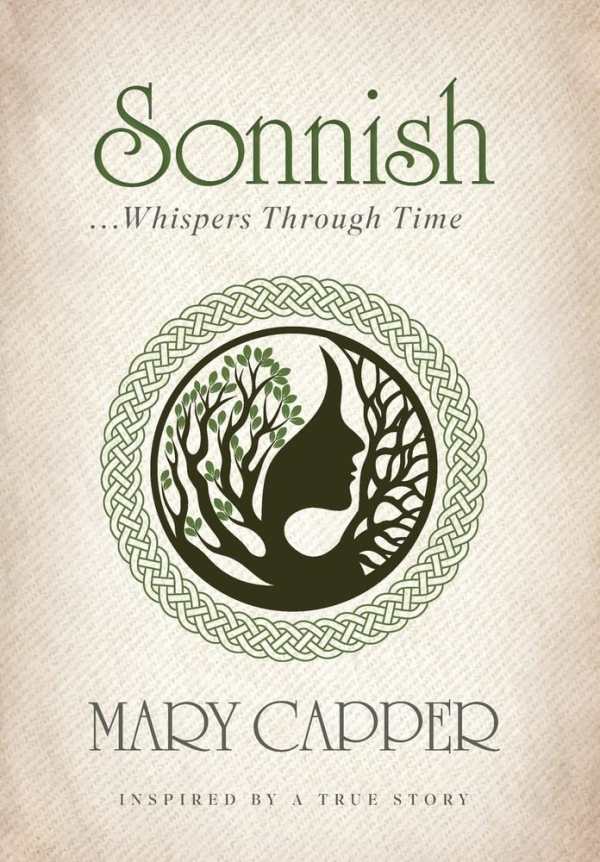Sonnish
Whispers through Time
Sonnish is a musing novel in which a genealogical search is used to show how knowledge increases empathy.
Mary Capper’s mystical historical novel Sonnish represents a compassionate search for a family’s roots.
Dozing near a willow tree on a summer day, Beth is startled awake by a whispering voice. The experience is like that of the “penultimate chord in a piece of music, just before the resolve, with your nerves standing at attention waiting to be told ‘at ease.’” Later, Beth rediscovers a mysterious glass amulet holding a willow leaf, prompting her to begin to pursue the truth about who her grandmother, Milly, was.
The book’s pacing is urgent to match Beth’s rush to uncover her grandmother’s disappearing past. Indeed, even as she dives into her family’s history, Beth worries that she has waited too long. No one who knew Milly is alive to answer her questions. Instead, she relies on primary research, with much of this leaning on military records. She also depends on her dreams and her instincts.
The early portions of the book have the atmosphere of a detective story. Information is released bit by bit, accompanied by sensory details, as of Beth taking two painkillers and making tea before carrying on with her research. When it is revealed that Milly’s family originated on the Isle of Man, that island’s ancient Manx culture is tapped in order to make sense of mysteries in Milly’s tale. Indeed, the island culture’s magical spirituality becomes a reason to allow Beth’s imagination to take over.
Once Beth lets herself engage in more mysticism, the story experiences an abrupt shift to Milly’s voice, allowing her to deliver her own account of her life as imagined by Beth. Historical elements become more prominent, used to illuminate her service in the British Women’s Army Auxiliary Corps during World War I, among other events. Physical details and images remain prominent, though now embellished by realistic, imagined exchanges between Milly and others, as well as by a series of letters that are used to map out Milly’s personal and professional life.
Lyrical prose marks the gentle narrative throughout, which gestures toward compassion on the whole. Elegant figurative language embellishes the book’s movements, as with an early description of a day at the beach that is “sun-licked and still gritty with sand” and of a moment of meditation that feels like a “giant cloche was lowered over … me and the tree.” Elsewhere, a spiritual presence descends, its entrance memorialized via synesthesia: “The rain from the night before had left the air fresh and fragrant; I inhaled the colour green.”
Sonnish is a musing novel in which a genealogical search is used to show how knowledge increases empathy.
Reviewed by
Michele Sharpe
Disclosure: This article is not an endorsement, but a review. The publisher of this book provided free copies of the book and paid a small fee to have their book reviewed by a professional reviewer. Foreword Reviews and Clarion Reviews make no guarantee that the publisher will receive a positive review. Foreword Magazine, Inc. is disclosing this in accordance with the Federal Trade Commission’s 16 CFR, Part 255.

